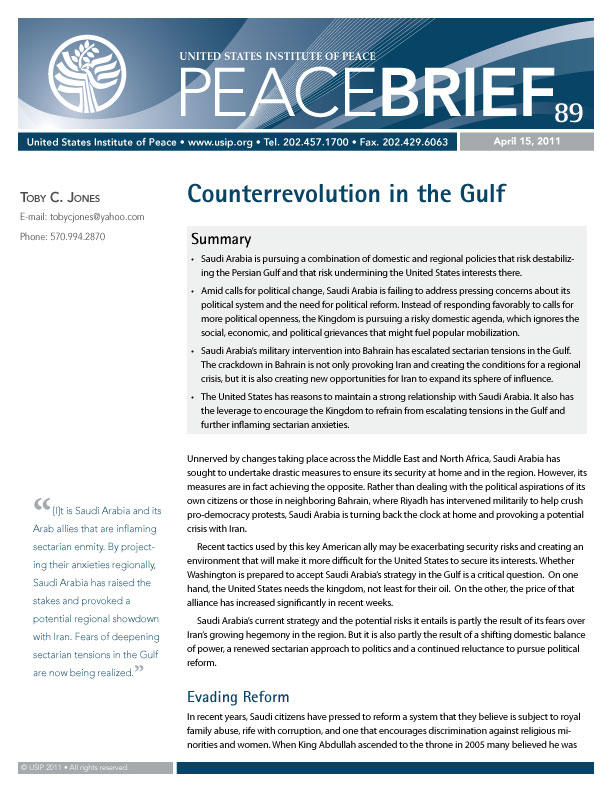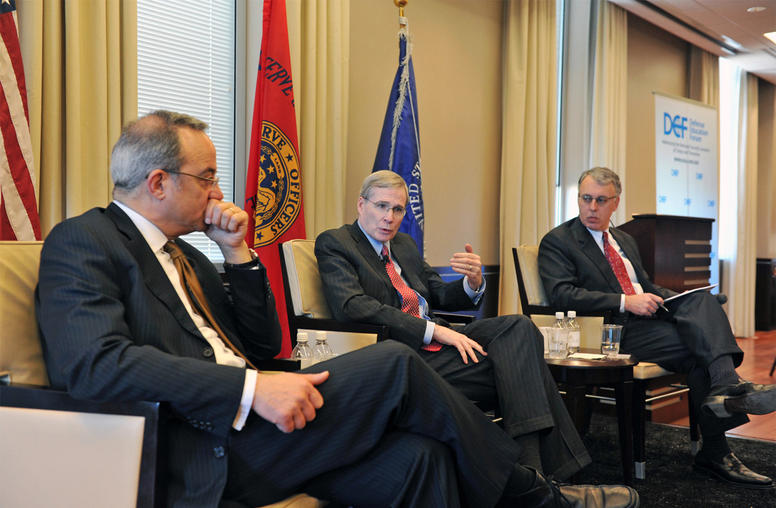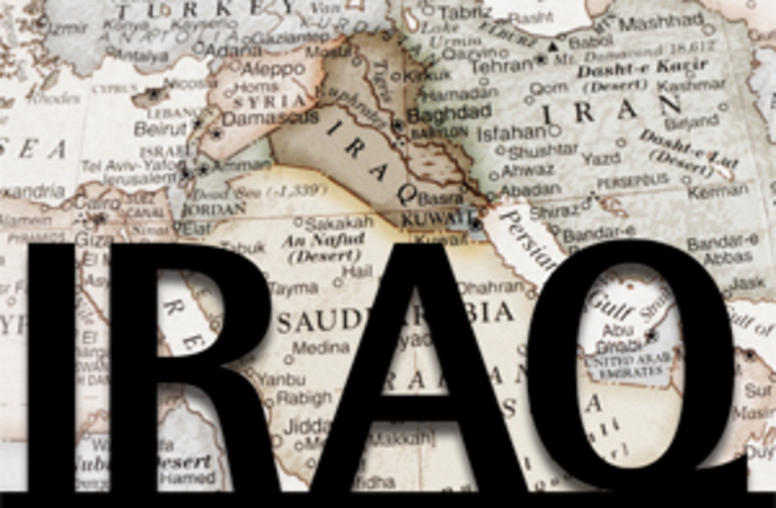Counterrevolution in the Gulf
Toby C. Jones has lived and worked in Saudi Arabia and Bahrain. Formerly the Gulf Analyst with the International Crisis Group, he is assistant professor of Middle East history at Rutgers University. He is the author of “Desert Kingdom: How Oil and Water Forged Modern Saudi Arabia” (Harvard University Press, 2010).

Summary
- Saudi Arabia is pursuing a combination of domestic and regional policies that risk destabilizing the Persian Gulf and that risk undermining the United States interests there.
- Amid calls for political change, Saudi Arabia is failing to address pressing concerns about its political system and the need for political reform. Instead of responding favorably to calls for more political openness, the Kingdom is pursuing a risky domestic agenda, which ignores the social, economic, and political grievances that might fuel popular mobilization.
- Saudi Arabia’s military intervention into Bahrain has escalated sectarian tensions in the Gulf. The crackdown in Bahrain is not only provoking Iran and creating the conditions for a regional crisis, but it is also creating new opportunities for Iran to expand its sphere of influence.
- The United States has reasons to maintain a strong relationship with Saudi Arabia. It also has the leverage to encourage the Kingdom to refrain from escalating tensions in the Gulf and further inflaming sectarian anxieties.
About this Brief
Toby C. Jones has lived and worked in Saudi Arabia and Bahrain. Formerly the Gulf Analyst with the International Crisis Group, he is assistant professor of Middle East history at Rutgers University. He is the author of “Desert Kingdom: How Oil and Water Forged Modern Saudi Arabia” (Harvard University Press, 2010). The views expressed here are his own.


